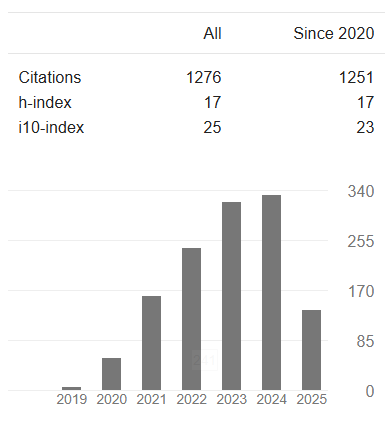Maximizing Business Profit: A Perspective from Islamic Economic Law
DOI:
https://doi.org/10.14421/EkBis.2023.7.1.1614Keywords:
Maximization, Profit, Law, Islamic EconomicsAbstract
Profit is the main goal taken by businessmen. The amount of profit earned is used as a measuring tool to evaluate the success of a business, so the profit earned must be higher than the cost of production. Nevertheless, there are business actors who take profits that are too large to be detrimental to consumers, so it is necessary to have a good profit standard, where the profits taken still benefit the businessman and not harm the consumer. So the profit taken must be fair and balanced with the cost of production taken. One of the characteristics of a capitalist economy is to minimize capital and obtain maximum profit. Whereas in Islamic economics the profit taken must be fair according to the capital issued. Islam is not specified, but a good profit does not exceed one -third of the capital. The concept of the goal of falah in Islamic business is problematic, and the ultimate goal is the good of the world and the hereafter. In this paper, we will discuss the law of maximizing business profits in Islamic Economic Law, as well as explain the concept of profit taking in Islam.
Downloads
References
Abdillah, B., & Yazid, M. (2023). Maksimalisasi Laba UMKM Pada Pasca Pandemi Dalam Perbankan Syariah. Jurnal Ilmiah Ekonomi Islam, 9(03), 4756–4761. https://jurnal.stie-aas.ac.id/index.php/jie Jurnal
Abdullah, B. (2010). Peradaban Pemikiran Ekonomi Islam. Pustaka Setia.
Adriani, D., Sinaga, A. F., Puspitasari, D., & Sinulingga, F. A. B. (2022). Analisis Harga, Pendapatan, Dan Permintaan Bahan Pokok Di Medan: Suatu Kajian Literatur. PROMOSI (Jurnal Pendidikan Ekonomi), 10(1), 71–81. https://doi.org/10.24127/pro.v10i1.5413
Al-Zuhaili, W. (1985). Al-Fiqh al-Islami wa Adillatuhu. Dar al-Fikr.
Al-Zuhaili, W. (2002). Al-Mu’amalat al-Mu’ashirah. Dar al-Fikr.
Ali, A. J., Al-Aali, A., & Al-Owaihan, A. (2013). Islamic Perspectives on Profit Maximization. Journal of Business Ethics, 117(3), 467–475. https://doi.org/10.1007/s10551-012-1530-0
Ariyasa, I. M., Susila, G. P. A. J., & Yulianthini, N. N. (2019). Pengaruh Pertumbuhan Aset Dan Struktur Modal Terhadap Profitabilitas Pada Perusahaan Sub Sektor Perkebunan Yang Terdaftardi Bursa Efek Indonesia. Prospek: Jurnal Manajemen Dan Bisnis, 1(2), 25. https://doi.org/10.23887/pjmb.v1i2.23151
Fais, A., & Dian, I. (2018). Effect of Operating Costs, Sales Volume, Working Capital and Assets Turnover on Net Profit. Indonesian Journal of Law and Economics Review, 1(3), 1–12. https://doi.org/https://doi.org/10.21070/ijler.v2i1.82
Firdaus, M. I., Pradhana, T. A., & ... (2020). The Concept of Money According to the Thought of Ibn Taymiyah and Imam Ghazali and its Implementation in the Economic Field. Al-Iktisab: Journal of …, 4(2). https://ejournal.unida.gontor.ac.id/index.php/aliktisab/article/view/5394
Gilarso, T. (2003). Pengantar Ilmu Ekonomi Mikro. Kanisius.
Hendra, & Ritonga, A. M. (2023). Pandangan Imam Al-Ghazali Terhadap Pengambilan Keuntungan Dalam Kegiatan Jual Beli. Journal of Management, Economic and Accounting (JMEA), 2(2), 80–85. https://bnr.bg/post/101787017/bsp-za-balgaria-e-pod-nomer-1-v-buletinata-za-vota-gerb-s-nomer-2-pp-db-s-nomer-12
Iftitah, T. (2016). Kontruksi Laporan Nilai Tambah Syariah pada PT. Bank Syariah Mandiri. Universitas Jember.
Jamin. (2019). ANALISISA HUKUM ISLAM TERHADAP KEUNTUNGAN DALAM JUAL BELI (Telaah Kritis Sirkulasi Ekonomi Dalam Transaksi Penjualan). LABATILA (Jurnal Ilmu Ekonomi Islam), 3(1), 97–114. https://ejournal.iainu-kebumen.ac.id/index.php/lab
Mutia, F. (2020). Ekonomi Manajerial dalam Pengembangan Usaha Mikro Kecil dan Menengah di Bidang Pertanian. UNITRI PREES.
Nasution, A. M. (2018). Batasan Mengambil Keuntungan Menurut Hukum Islam. Jurnal El-Qanuniy: Jurnal Ilmu-Ilmu Kesyariahan Dan Pranata Sosial, 4(1), 88–100. https://doi.org/10.24952/el-qonuniy.v4i1.1829
Putri, A. D. M. (2013). Pengaruh Laba, Return on Equity (ROE) dan Inflasi terhadap Pembiayaan Qard Al-Hasan di KJKS BMT MMU Sidogiri-Pasuruan. Institut Agama Islam Negeri Sunan Ampel Surabaya.
Qordowi, Y. (1997). Peran Dan Nilai Moral Dalam Perekonomian Islam. Robban Press.
Rasyiddin, A., Dharma, B., & Sari Siahaan, F. (2022). Perbandingan Keuangan Berdasarkan Teori-Teori Laba Secara Kualitatif. Eksis Hum, 20(20), 173–182.
Sastradipura, K. (2004). Strategi Manajemen Bisnis Perbankan. Kappasigma.
Shifa, U. L., & Mutho`am, M. (2021). Standar Harga dalam Transaksi Jual Beli Perspektif Wahbah Az-Zuhaili. Syariati, 7(2). https://doi.org/10.32699/syariati.v7i2.2245
Sholihin, A. I. (2010). Buku Pintar Ekonomi Syariah. PT Gramedia Pustaka Utama.
SR, S. (2003). Akuntansi Suatu Pengantar. Jilid Ke-1. Salemba Empat.
Suharya, Y., Sutrisno, S., & Nurmilah, R. (2021). Pengaruh Biaya Produksi Terhadap Laba Bersih Cv. Berkah Jaya General Supplier Snack Food. Jurnal Bina Akuntansi, 8(2), 145–167. https://doi.org/10.52859/jba.v8i2.161
Tamama, N. N. (2019). Hermeneutika Laba Dalam Perspektif Islam. Universitas Wirajaya.
Tohari, K. (2015). Konsep Laba dalam Ekonomi Islam dan Ekonomi Aliran Keynesian. Sekolah Tinggi Agama Islam Negeri.
Downloads
Published
Issue
Section
License
Copyright (c) 2023 Muhammad Irkham Firdaus, Saipul Nasution, Devid Frastiawan Amir Sup

This work is licensed under a Creative Commons Attribution-ShareAlike 4.0 International License.





























 This work is licensed under a
This work is licensed under a 